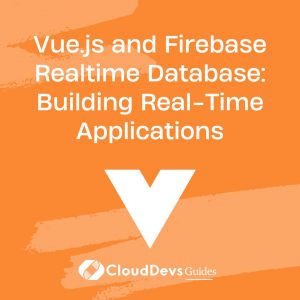Top Vue Developer Certifications and Courses to upskill yourself in 2023
Table of Contents
1. Complete Vue Developer 2023: Zero to Mastery (Pinia, Vitest) by Udemy
The Complete Vue Developer 2023: Zero to Mastery course is a comprehensive training designed to help developers build robust and scalable Vue.js applications. This course covers various aspects of Vue.js, including its core concepts, syntax, advanced techniques, and component architecture.
- Introduction to Vue.js: In this module, we will provide an overview of Vue.js, discussing its benefits and use cases. We will also guide you through the installation process, ensuring that you have all the necessary tools to get started with Vue.js development.
- Vue.js Basics: This module delves into the core concepts of Vue.js, including understanding its syntax, using Vue components, and creating Vue.js applications. We will cover the basics of reactivity, data binding, Vue templates, and more.
- Vue.js Advanced: This advanced module explores various advanced topics in Vue.js, such as working with Vue.js directives, using filters, and manipulating data with Vue.js. You will learn how to optimize the performance of your applications, add custom transitions, and create reusable components.
- Vue.js Components: In this module, we will focus on building robust and reusable Vue.js components. We will cover the lifecycle hooks of components, their composition, and strategies for organizing large applications with Vue.js components.
This course incorporates 28 hours on-demand video. By completing this course, you will gain a thorough understanding of Vue.js and its ecosystem. You will be able to build scalable and maintainable Vue.js applications from scratch and leverage the latest tools and techniques in the industry.
2. Vue – The Complete Guide (incl. Router & Composition API) by Udemy
Vue is a powerful and easy-to-use JavaScript framework for building dynamic and interactive user interfaces. It is known for its simplicity, performance, and flexibility and is a popular choice among developers for building modern web applications.
- Vue Basics: Vue components play a key role in building Vue applications. They are self-contained and modular units that encapsulate specific UI elements, behaviors, and data. Vue components can be nested within each other to create a hierarchical structure, allowing developers to build complex applications with ease.
- Data: Working with data within Vue components is another important aspect. Vue provides two-way data binding, which ensures that the component’s data is always in sync with the model. This eliminates the need for manual data synchronization and ensures a clean and maintainable architecture.
- Vue templates: Vue templates are at the core of Vue’s templating engine. They provide a way to declaratively render HTML elements based on the data provided within the component. Vue templates are expressive and easy to read, making them ideal for building dynamic and interactive user interfaces.
- Vue Router: Vue Router is a component that provides routing capabilities in Vue applications. It allows us to define routes and navigate our application efficiently. Vue Router works seamlessly with Vue components and allows us to create dynamic, Single-Page Applications (SPAs).
- Routes and paths: Understanding routes and paths in Vue Router is crucial for building robust and maintainable applications. Routes define the URL patterns that map to specific views or components in an application. Paths are the URLs used to navigate between routes and can be customized to fit our needs.
- Navigation: Working with navigation in Vue Router is made easy through the router-link component. This component allows us to create anchor tags that automatically navigate users to the appropriate route when clicked.
- Vue Composition API: Understanding the features of Vue Composition API is essential for harnessing its full potential. One of the key features of Vue Composition API is its ability to bind reactive data directly to component instances. This eliminates the need for explicit data synchronization and simplifies the code. Working with Vue Composition API requires a slight shift in mindset compared to traditional Vue application development. However, it provides numerous benefits and opens up new possibilities for building complex and sophisticated applications.
Offering 31.5 hours on-demand video in this course, Vue is a comprehensive framework that provides a solid foundation for building modern web applications. Its modular components, data management, and template syntax make it easy to create powerful and intuitive user interfaces. With the addition of Vue Router and Vue Composition API, Vue becomes even more powerful and capable, enabling developers to build sophisticated and maintainable applications.
3. Nuxt.js 2 – Vue.js on Steroids by Udemy
In this comprehensive course, we will explore the amazing potential of Nuxt.js 2, Vue.js’s powerful framework. Nuxt.js 2 is a revolutionary framework that combines the power of Vue.js with the benefits of server-side rendering and routing. It enables us to build highly performant and scalable web applications with ease. The course is divided into different modules, each covering a specific topic related to Nuxt.js 2.
- Fundamentals of Nuxt.js 2: This module introduces you to the fundamentals of Nuxt.js 2. You will gain a clear understanding of how Nuxt.js 2 differs from other frameworks and how it provides numerous benefits.
- Building applications: Throughout this module, you will learn the basics of building applications with Nuxt.js 2, including setting up a new project, configuring routes, and leveraging Nuxt.js 2’s built-in functionalities. You will learn about the unique features of Nuxt.js 2 and how it makes development easier and faster. You will be introduced to the concept of universal rendering and how it improves the performance of your application.
- Advanced features of Nuxt.js 2: Module 2 delves into the advanced features of Nuxt.js 2. In this module, you will explore how to customize and extend Nuxt.js 2’s functionalities using plugins, modules, and custom code. You will also learn about Nuxt.js 2’s built-in routing mechanisms and how to use them effectively. Additionally, you will be introduced to the concept of universal rendering, which enables you to optimize the performance of your application by pre-rendering it on the server side.
- Applications: This module focuses on integrating Nuxt.js 2 with backend applications. You will learn how to communicate with external APIs using Nuxt.js 2’s built-in methods for fetching and manipulating data. You will also explore how to seamlessly integrate Nuxt.js 2 applications with various backend technologies like REST APIs, GraphQL, and Node.js. You will gain an understanding of how Nuxt.js 2 simplifies the process of application development. You will learn how to create components, organize files, and leverage Nuxt.js 2’s routing features to build dynamic applications.
- Functionalities: You will learn about Nuxt.js 2 plugins, modules, and how to create your own plugins and modules. Additionally, you will learn how to optimize the performance of your application with Nuxt.js 2’s built-in functionalities.
- Integration: This module focuses on integrating Nuxt.js 2 with backend applications. You will explore how to use Nuxt.js 2’s built-in methods for fetching and manipulating data from various backend technologies. You will also learn how to handle authentication and authorization in Nuxt.js 2 applications and implement real-time communication using Websockets.
Offering 6.5 hours on-demand video, by the end of the course, you will have gained a comprehensive understanding of Nuxt.js 2 and be able to apply it in real-world scenarios. You will have the skills to build robust and scalable applications with Nuxt.js 2, using features like server-side rendering, routing, and integration with backend applications.
4. Vue JS 2.0 – Mastering Web Apps by Udemy
The course covers various aspects of Vue JS, such as Introduction, Basics of Vue JS, Handling Events, Working with Forms, Routing, and Vue JS and REST APIs. Each module consists of a series of video lectures and practical exercises to help you master the subject.
- Introduction: This module provides an introduction to Vue JS, including its history, features, and benefits. You will also learn about the basics of Vue JS, including installation, project structure, and components. In this module, you will get an overview of the Vue JS framework and understand its key concepts. You will learn about the core principles of Vue JS, such as components, data binding, and templates.
- Basics of Vue JS: This module delves deeper into the core concepts of Vue JS, such as data binding, templates, and components. You will understand how Vue JS works and how it can be used to create interactive web applications. This module covers the basics of Vue JS, including installation, project structure, and components. You will also learn how to create your first Vue JS application and structure your application.
- Handling Events: This module focuses on handling events in Vue JS. You will learn about different types of events, how to capture them, and how to manipulate them. You will also learn how to create custom events and handle them in Vue JS.
- Working with Forms: This module covers various aspects of working with forms in Vue JS. You will learn how to create forms, handle form inputs, validate form data, and implement form validation in Vue JS.
- Routing: This module explores routing in Vue JS. You will learn how to organize your application’s UI using routes, create custom routes, and handle route transitions.
- Vue JS and REST APIs: This module focuses on integrating Vue JS with REST APIs. You will learn how to retrieve data from external APIs, format data for display, and interact with REST APIs in Vue JS.
Offering 4.5 hours on-demand video, by the end of this course, you will have a strong understanding of Vue JS and the necessary skills to build interactive and user-friendly web applications.
| Course/ program | Cost | Level | Duration | Study mode |
|---|---|---|---|---|
| Complete Vue Developer 2023: Zero to Mastery (Pinia, Vitest) | $74.99 | Intermediate/ Advanced | 28 hours | Online |
| Vue - The Complete Guide (incl. Router & Composition API) | $74.99 | Intermediate/ Advanced | 31.5 hours | Online |
| Nuxt.js 2 - Vue.js on Steroids | $69.99 | Intermediate/ Advanced | 6.5 hours | Online |
| Vue JS 2.0 - Mastering Web Apps by Udemy | $64.99 | Intermediate/ Advanced | 4.5 hours | Online |
As you can see in the summarized table above, the levels, costs and duration relevant to these courses vary. Therefore, some tend to be more expensive, and some are more appropriate for beginners while others for intermediate or advanced developers. When choosing which Vue Certifications and Courses to pursue, it remains key to consider your own budget, skill level as well as goals.
5. Conclusion
These certifications and courses provide valuable opportunities for Vue developers to enhance their skills and stay up-to-date with the latest trends and best practices in Vue development. Whether you are a beginner or an experienced developer, investing in these resources can significantly boost your proficiency and open doors to exciting career opportunities in 2023.
Table of Contents








